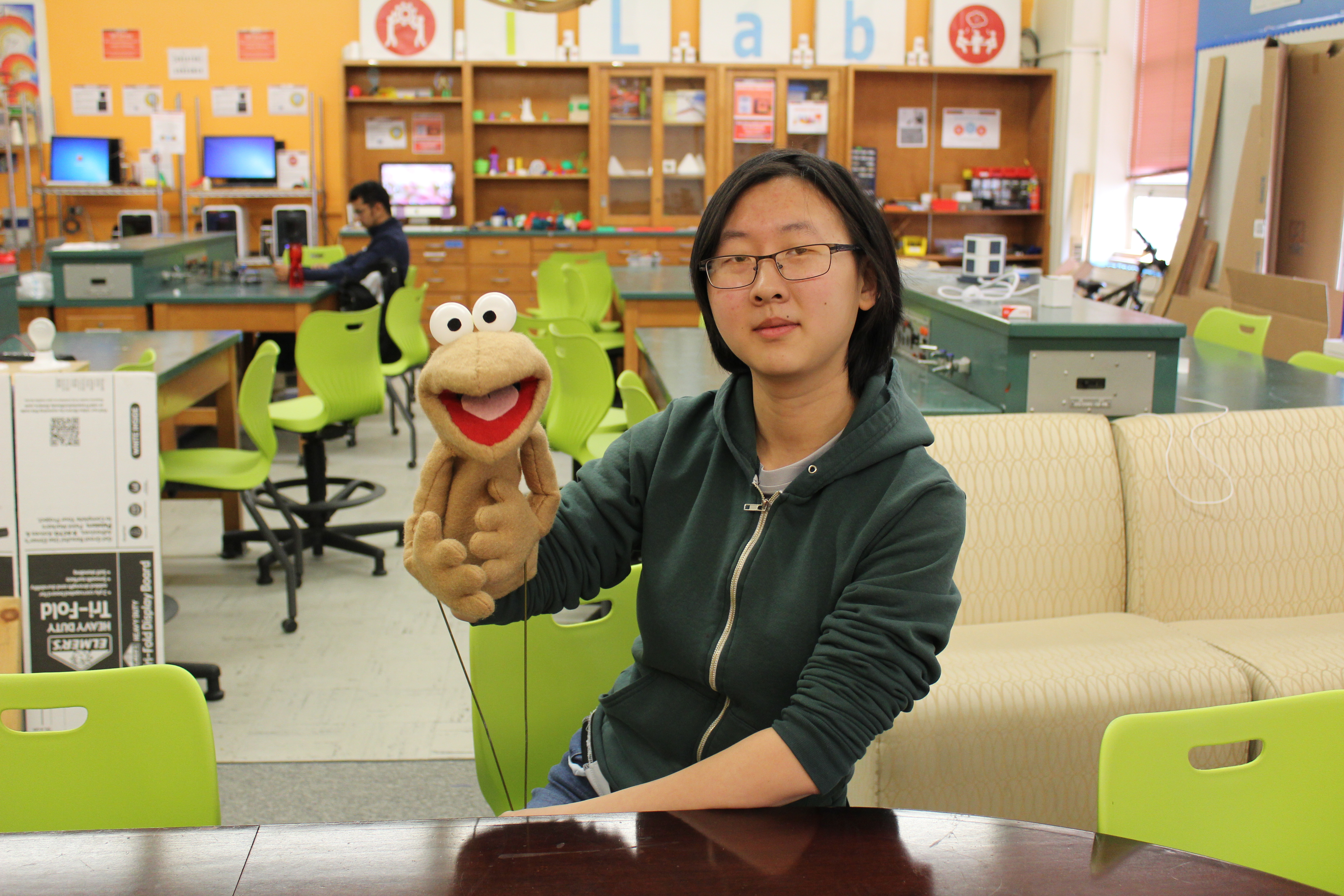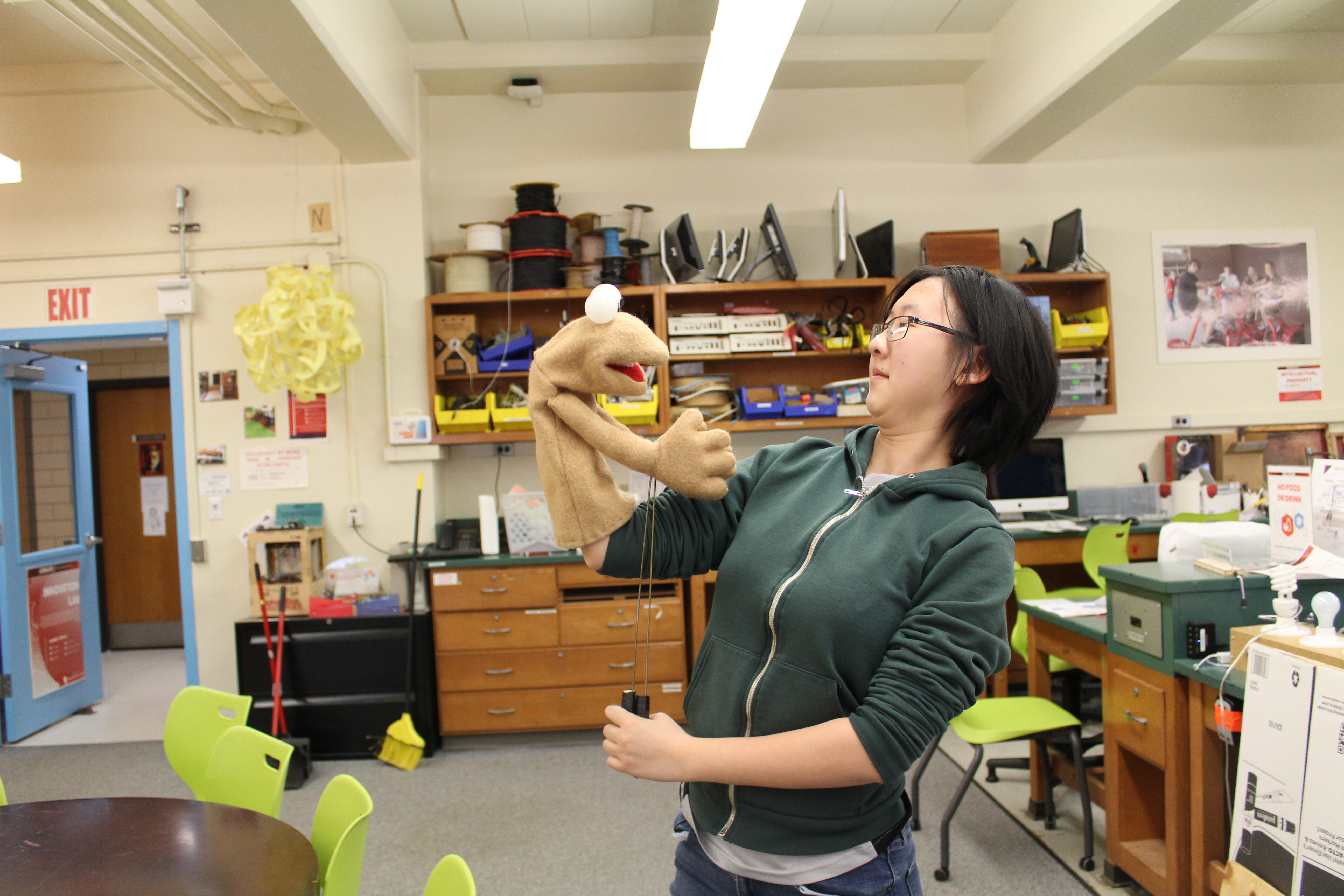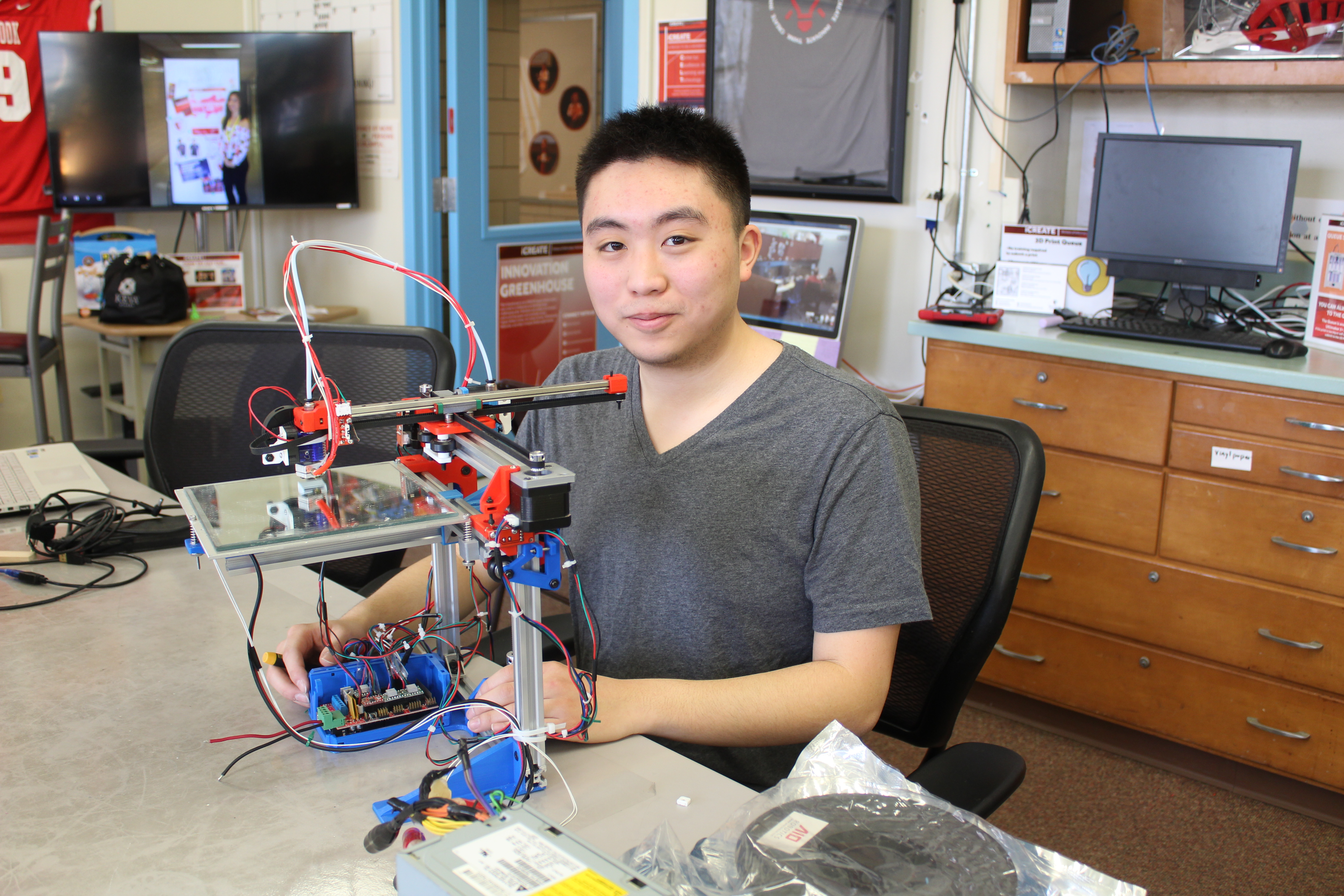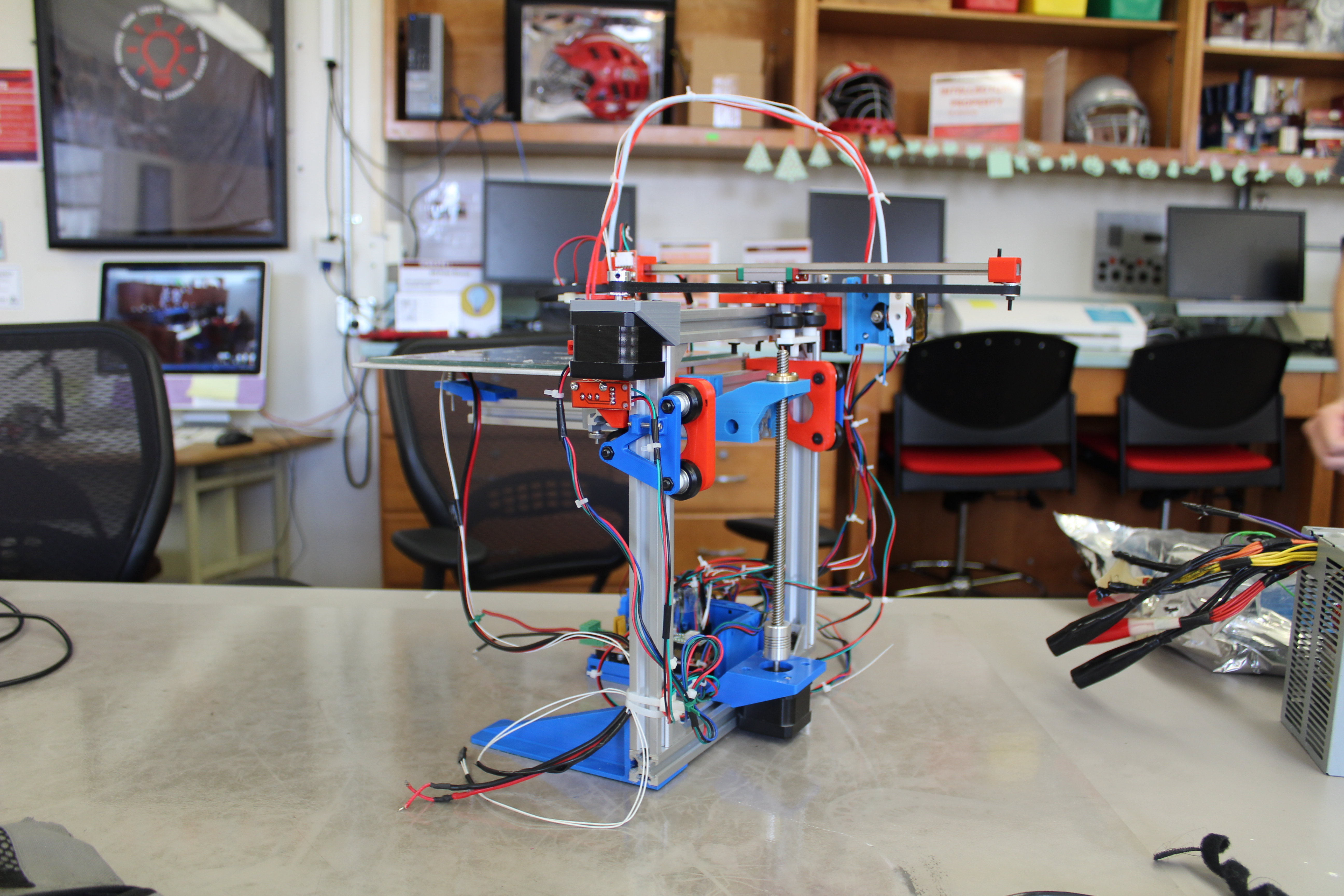Everett Yang is a freshman studying computer science. They want to pursue a career in video game design — blending art and technology. That’s why they were inspired when they visited the Museum of the Moving Image in Queens.
The Museum of the Moving Image works to foster an understanding and appreciation of the melding of technology and media. Everett visited and was dazzled by the museum’s display on Jim Henson — the famous filmmaker and puppeteer, most well known for his creation of The Muppets.
Going to this exhibit inspired Everett to create a puppet of their own. They found iCREATE through their ITS 101 Introduction to Stony Brook class, and they were interested in the resources iCREATE has to offer. Once they decided to create their own puppet, going to the Innovation Lab seemed like the clear choice to make that idea into a reality.
They found a pattern and materials online and used the resources in the Innovation Lab to bring the puppet to life. The eyes are made of ping pong balls, and Everett used wire cutters to cut up metal hangers for the rods that control the puppets arms. Everett then attached the rods to cardboard bases in the hands, and used the sewing machine to sew it together.
Puppetry is a very ancient art form dating back to as early as Egypt in 2000 BCE with some historians hypothesizing that puppets pre-date actors in theater. However, the modern rise in popularity of puppets in the United States originated in the 1940’s with the advent of television. Shows such as Howdy Doody and the Charlie McCarthy Show appealed to both children and adults.
Everett wants to do more adult-geared comedy with his puppet, but wants to start off small, such as creating lip-syncing videos or sketches from The Muppets. If they do this, Everett will be sure to use the multimedia tools offered in the Innovation Greenhouse to create a YouTube channel.
Taking influences from ancient puppetry as well as modern, “The puppet doesn’t have a name or species,” according to Everett, “It’s up to interpretation.” Everett’s next step will be to create a puppet with legs.








